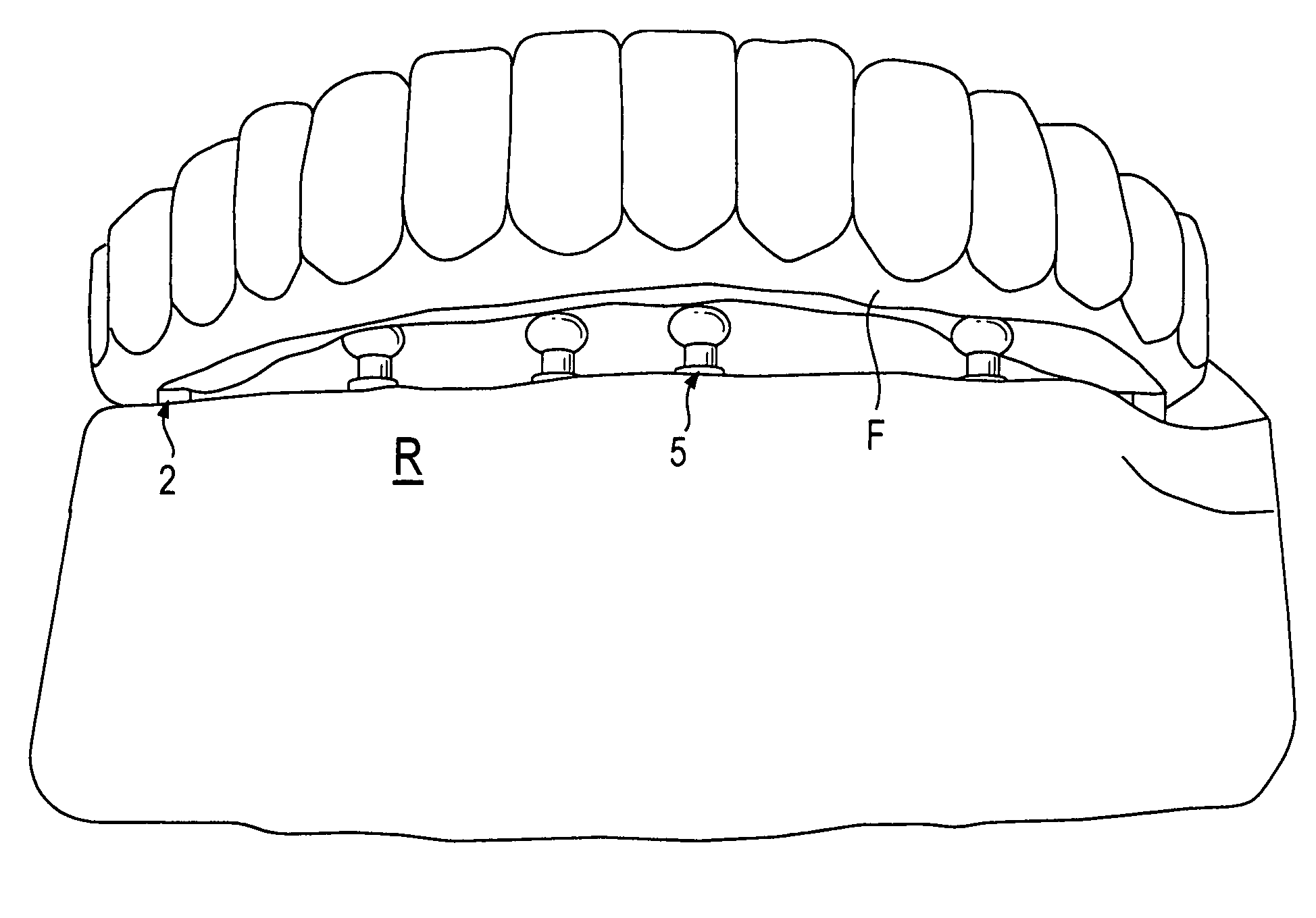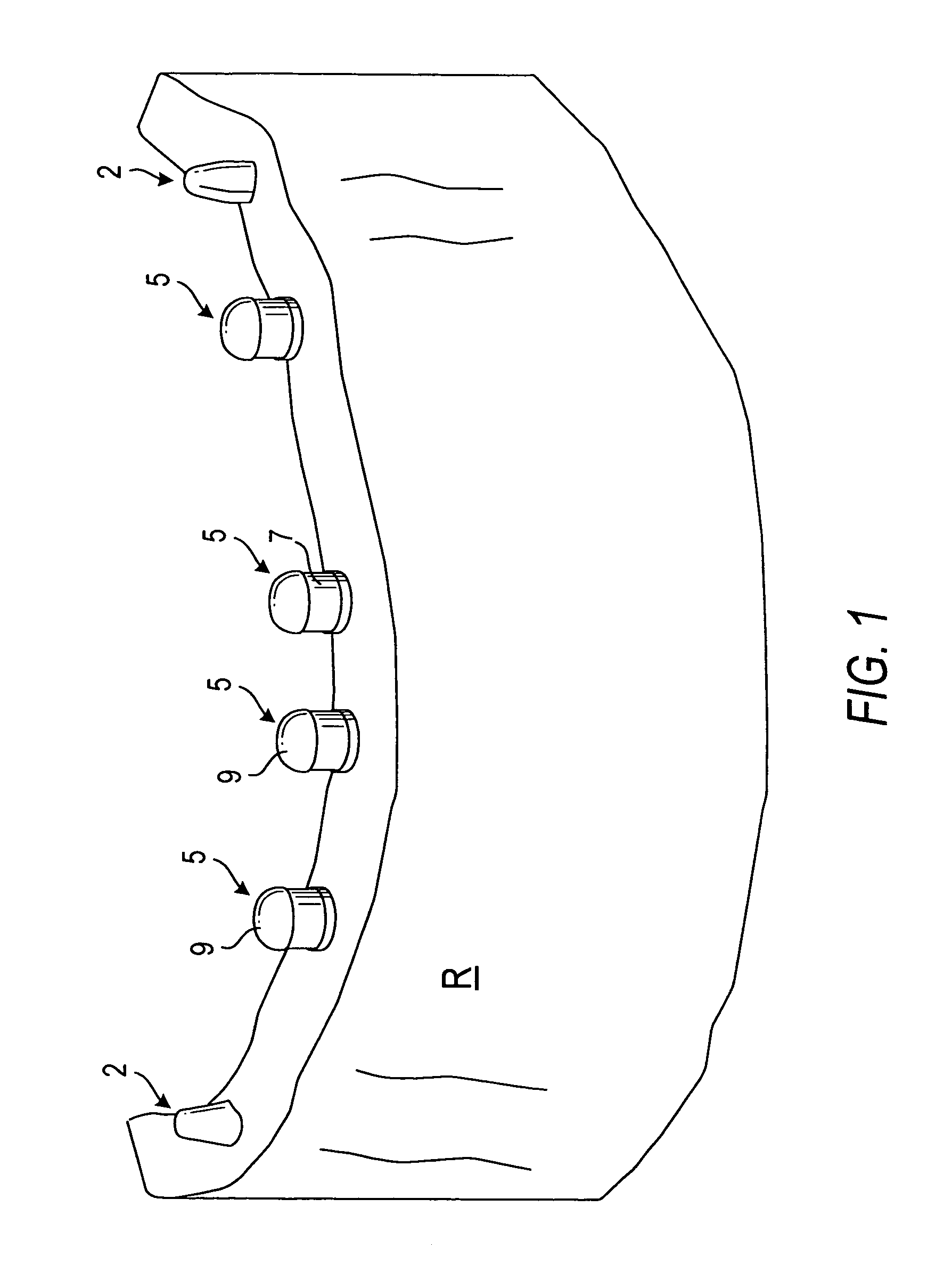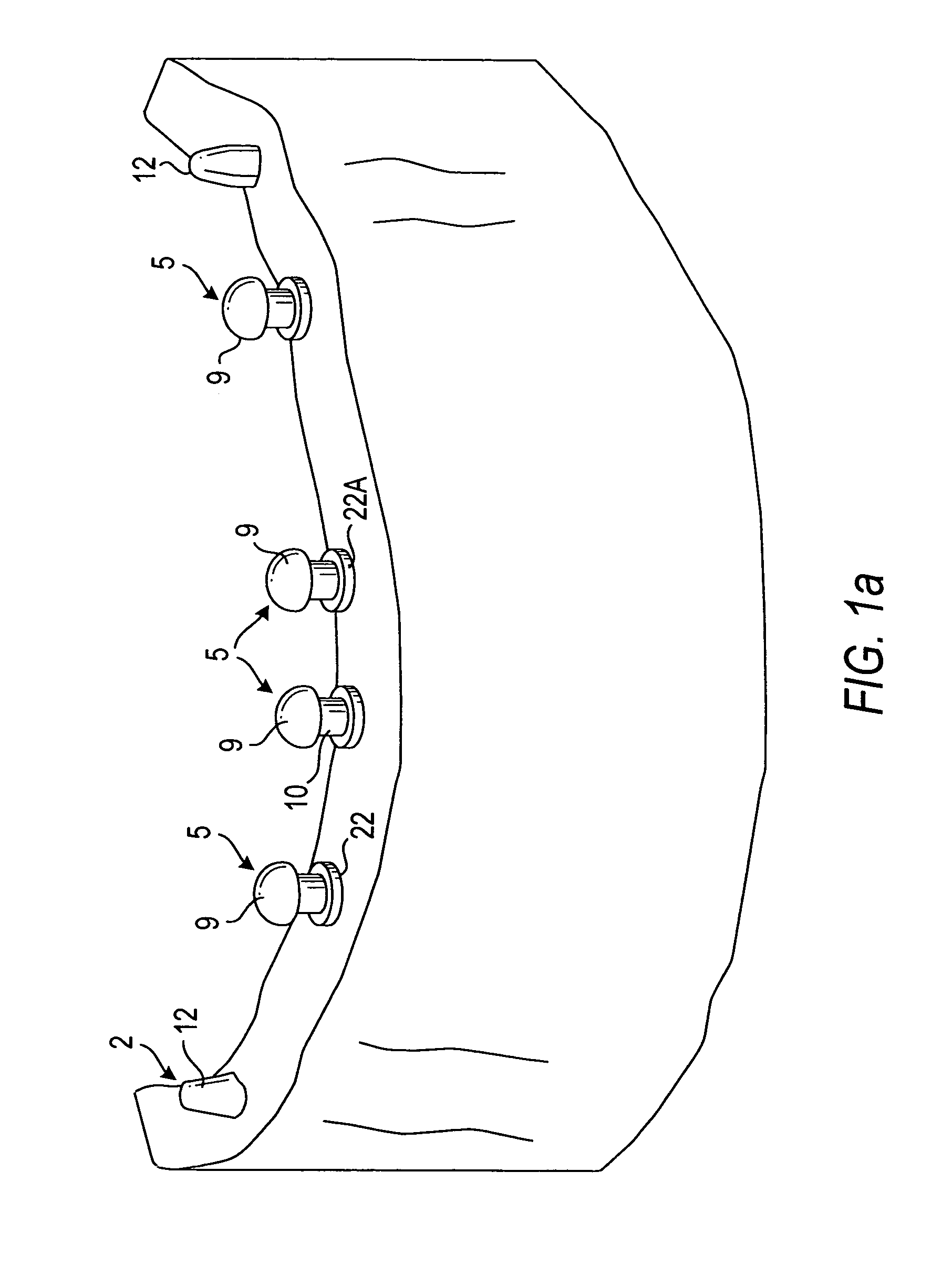Components for permanent removable and adjustable dentures and bridges
a technology of removable and adjustable dentures and components, applied in dental prosthetics, dental surgery, medical science, etc., can solve the problems of irritating the patient's jaw, loosing the fit, lack of function, etc., and achieve the effect of enhancing rigidity and support, avoiding movement or dislocation of implanted screws, and efficiently and relatively easily secured in the jaw
- Summary
- Abstract
- Description
- Claims
- Application Information
AI Technical Summary
Benefits of technology
Problems solved by technology
Method used
Image
Examples
Embodiment Construction
[0026]As described herein, the various rigid structural components shown in the drawings are fabricated from, for example, titanium, stainless steel, and / or any other suitable dental implant material which can withstand functional loads and support crowns, bridge segments, or the complete replacement of teeth with tooth forms / synthetic teeth / artificial teeth.
[0027]A model of a patient's jaw ridge R is shown in FIGS. 1 and 1a, including implanted into the jawbone ridge a pair of the guide, or indexing, pins 2 in the posterior-most portions of the model, and a series of implant screw type retention pins 5. Each of the retention pins has a flattened dome-shaped, or spheroidal, head 9, and a narrower neck 10 and threaded shank 20, extending into the jawbone. Intermediate the shank and neck is a flange 22 having a distally facing platform 22A. The combination of the neck 10 and head 9 provides an undercut surface for retention and the platform 22A a firm support for the denture. In addit...
PUM
 Login to View More
Login to View More Abstract
Description
Claims
Application Information
 Login to View More
Login to View More - R&D
- Intellectual Property
- Life Sciences
- Materials
- Tech Scout
- Unparalleled Data Quality
- Higher Quality Content
- 60% Fewer Hallucinations
Browse by: Latest US Patents, China's latest patents, Technical Efficacy Thesaurus, Application Domain, Technology Topic, Popular Technical Reports.
© 2025 PatSnap. All rights reserved.Legal|Privacy policy|Modern Slavery Act Transparency Statement|Sitemap|About US| Contact US: help@patsnap.com



